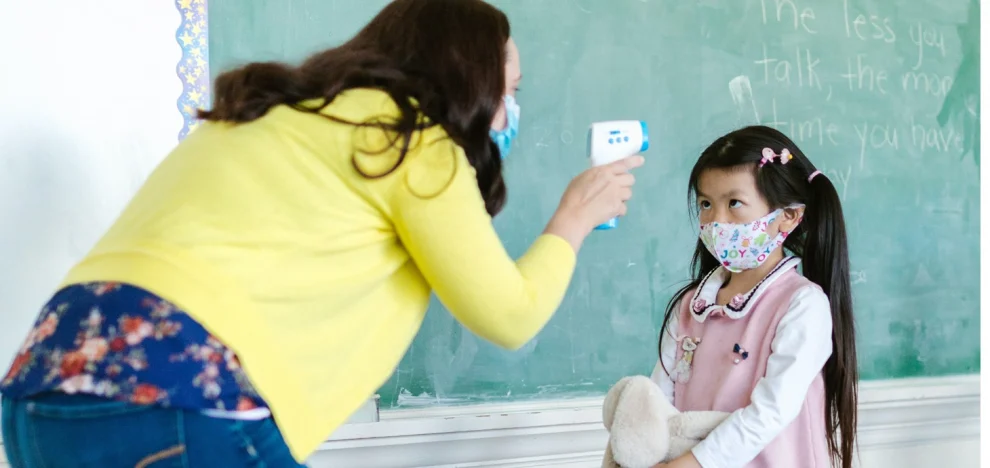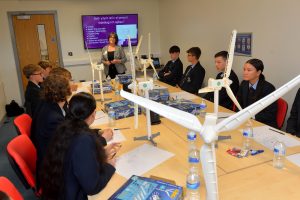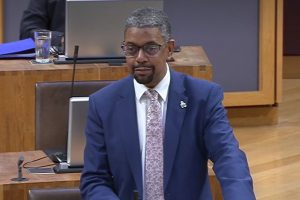THE MORE direct contacts primary school staff had with people outside their household, the greater the likelihood of Covid-19 cases in school and self-reported symptoms, such as colds.
New research by Swansea University also found that when children from different classes mixed, for example at breakfast and extra-curricular clubs, there was no increased likelihood of Covid-19 in the school, supporting opportunities for pupils to mix and play together.
In addition, the team found face coverings and social distancing did not reduce the likelihood of school Covid-19 cases.
The study, led by researchers from the National Centre for Population Health and Wellbeing Research, is currently under review and has been published as a pre-print on MedRxiv, a site used by researchers to share new findings on timely issues before they have been peer-reviewed for publication in a journal.
The study linked a staff survey examining different school-based mitigation measures with COVID-19 testing data at the school level using the SAIL Databank, which houses anonymised person-based data that can be used for research to improve health, wellbeing and services.
Since the pandemic began, measures to prevent or reduce the spread of Covid – such as the introduction of social distancing and face masks and the halting of breakfast clubs and extra-curricular activities – have had a dramatic impact on a typical day for primary pupils.
Dr Emily Marchant said: “Schools remaining open is a key priority as our previous research shows the impact of school closures on widening inequalities.
“Our findings show it is important for school staff to try to minimise the number of direct contacts in schools to reduce the risk of transmission in the school setting and ensure schools can remain open to safeguard children’s health, wellbeing, and education.”
Dr Marchant said the research was vital as children and staff prepare to return to classrooms with many guidelines such as mask-wearing and social distancing reversed.
“We are grateful to the schools that have taken part in this research as this allows us to work together and find the best evidence to protect children, families and schools.”The study set out to examine these mitigation methods and their impact on Covid-19, respiratory infection, and staff wellbeing between October to December 2020.
The researchers analysed responses received from 353 people at 59 primary schools within 15 of Wales’s 22 local authorities.
This latest research is part of the Controlling Covid-19 through enhanced population surveillance and intervention project (ConCOV), a UKRI-funded Covid-19 Rapid Response Call, to help understand and address challenges posed by the pandemic.
ConCOV will run for 12 months and will provide a platform for research to inform evidence-based strategies to control the virus, safeguard the general population and help bring the UK out of lockdown.
















